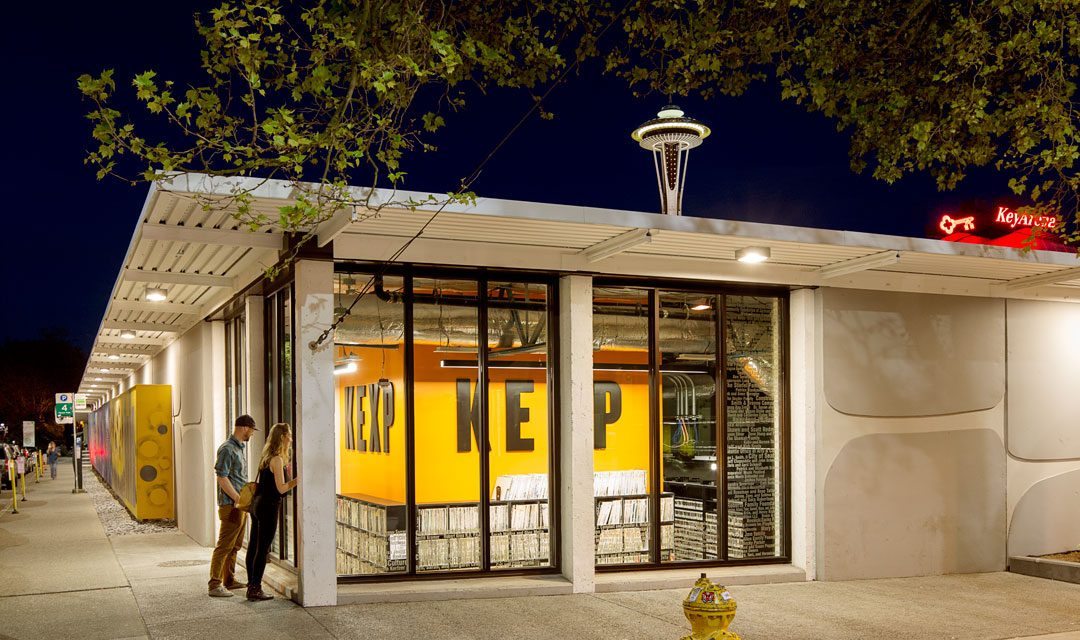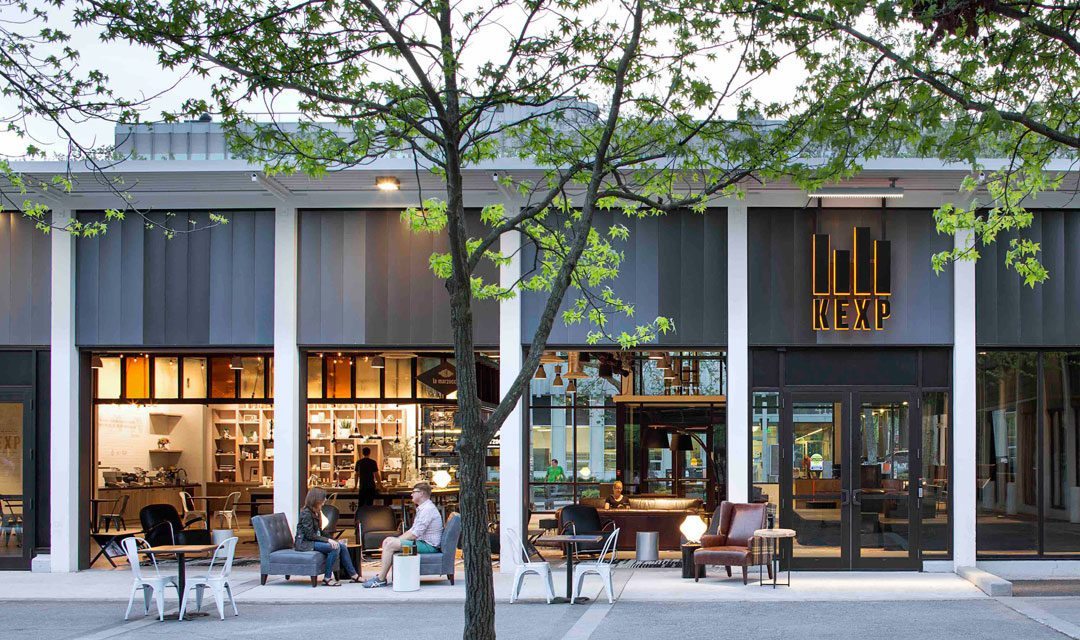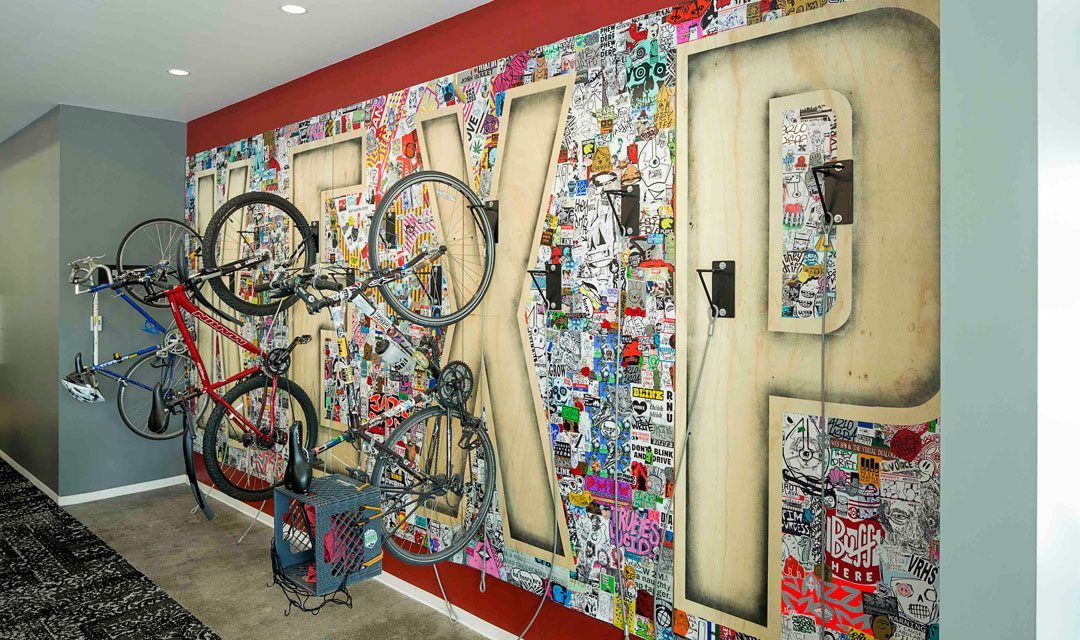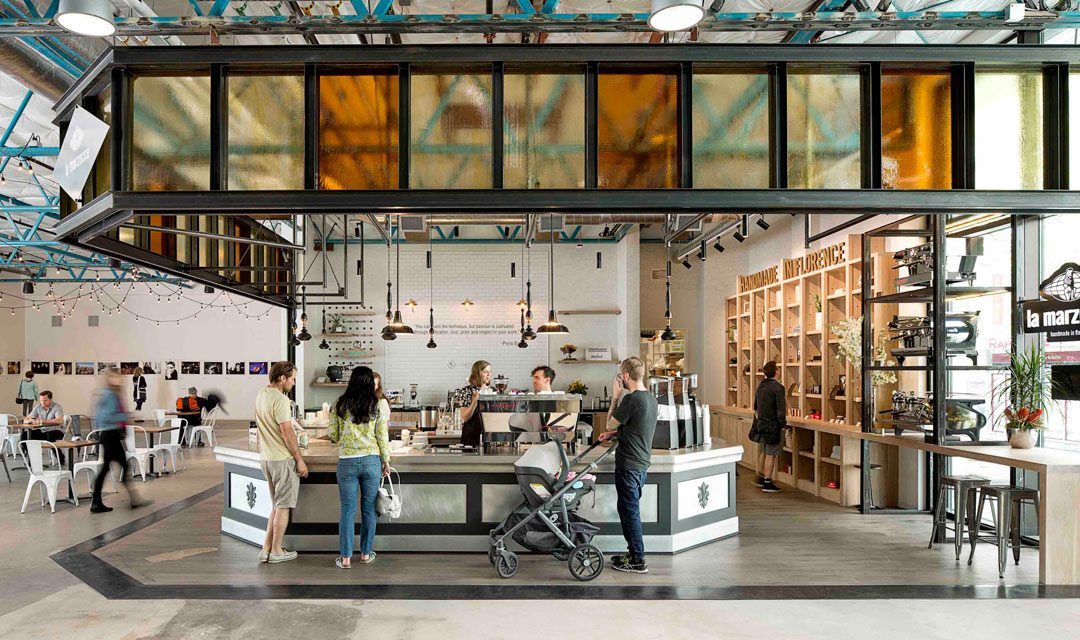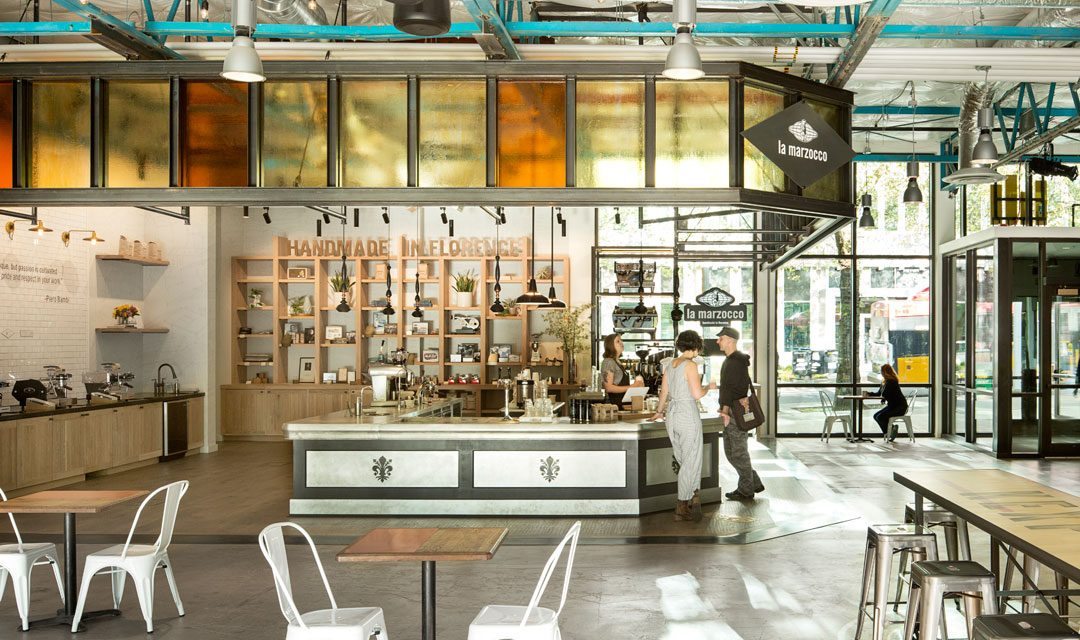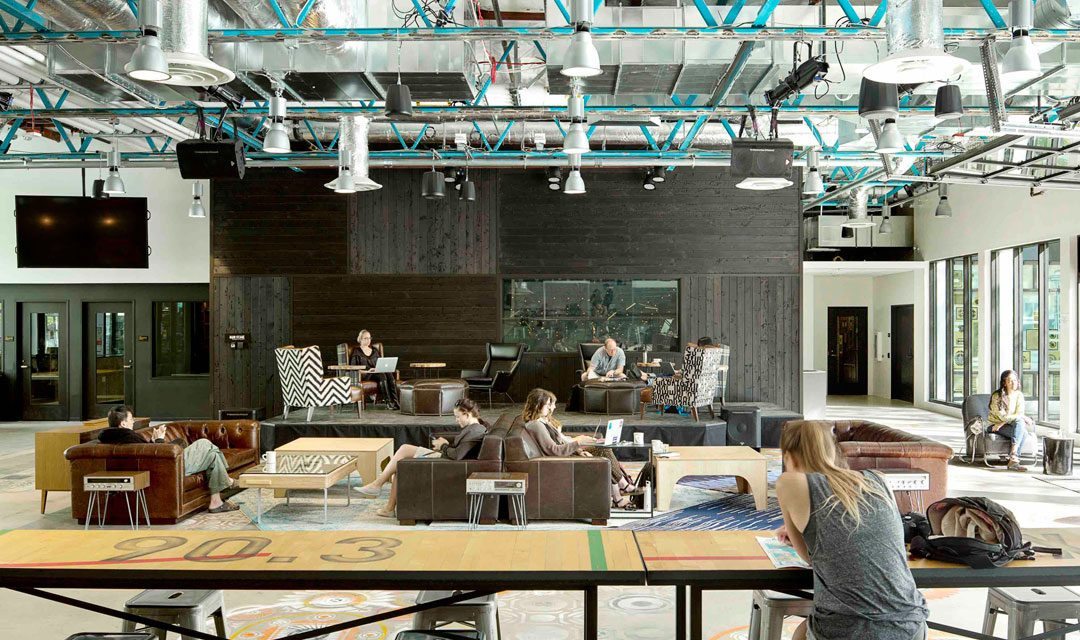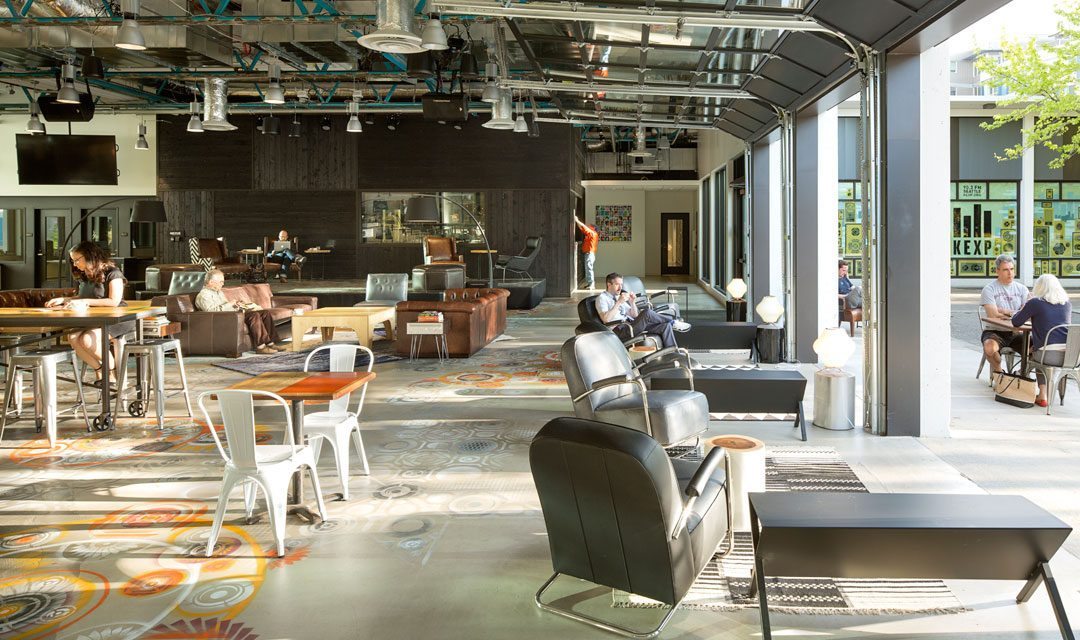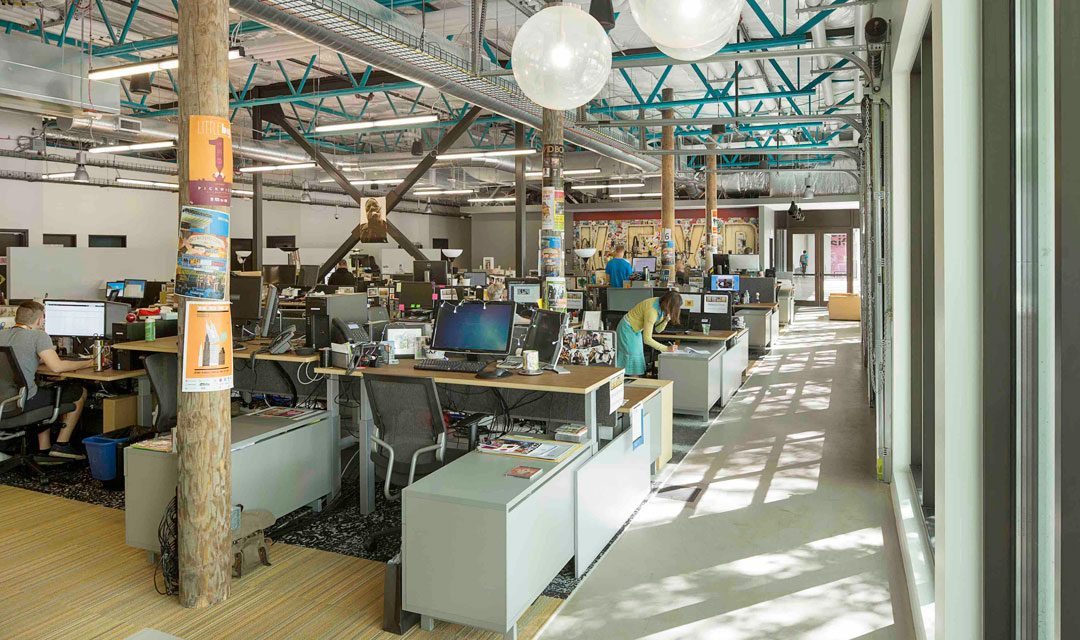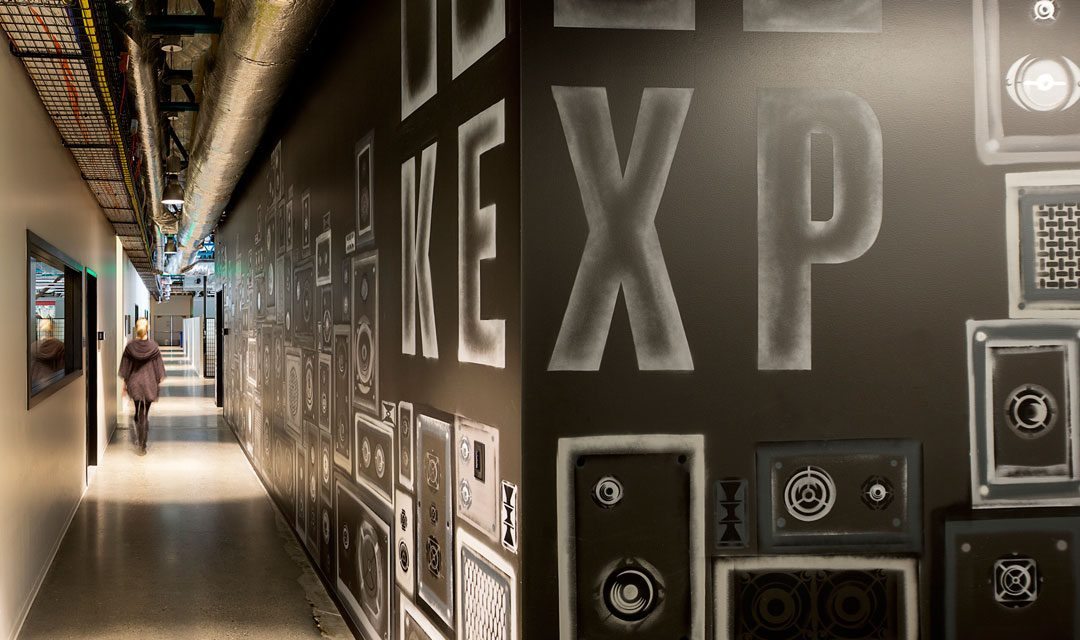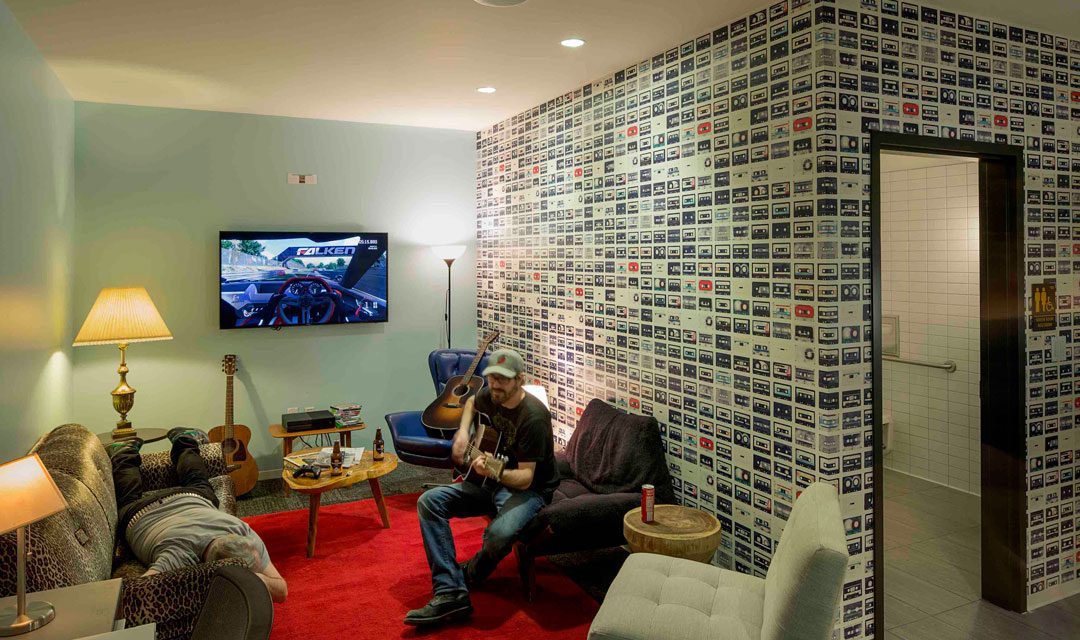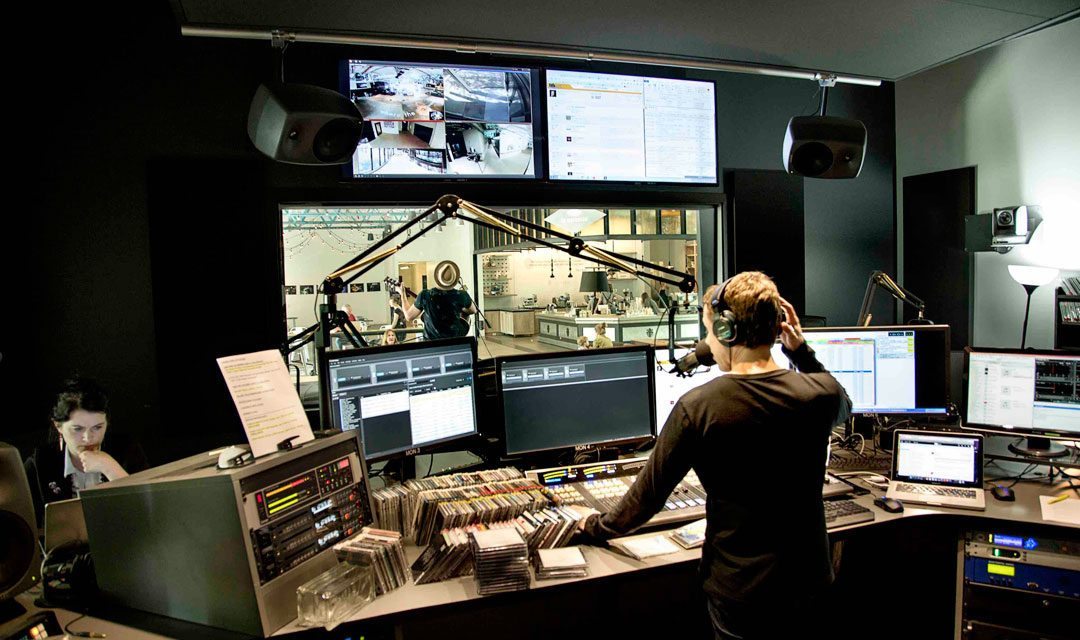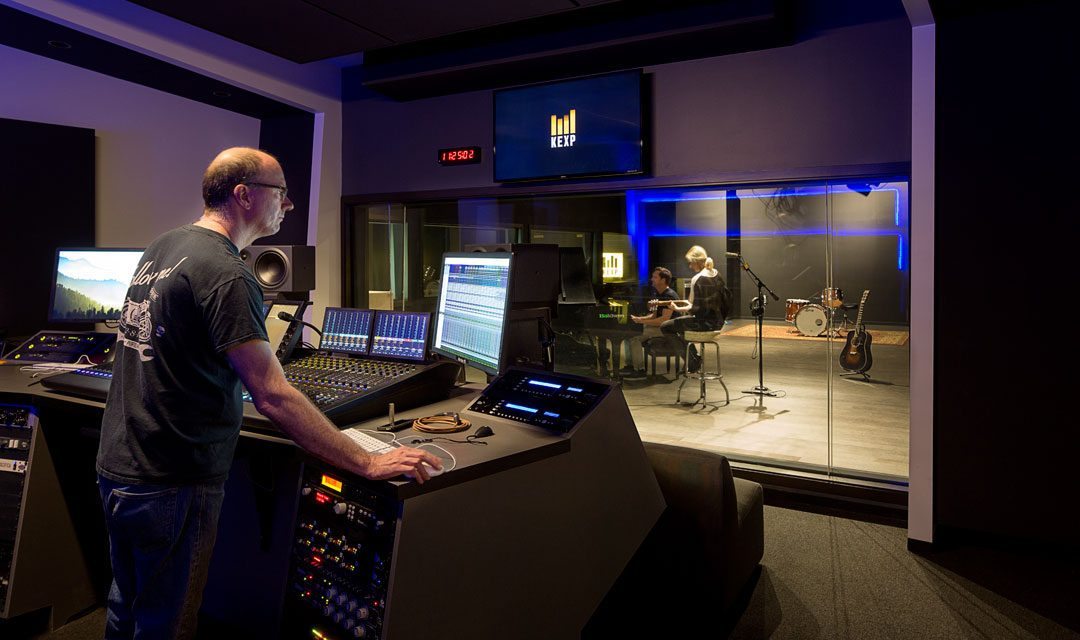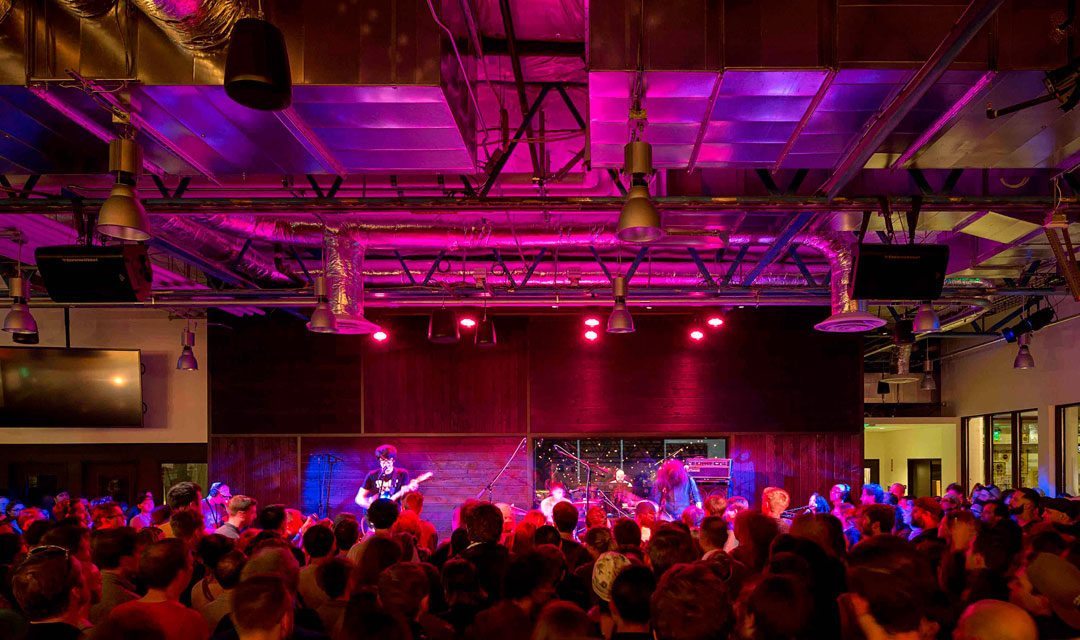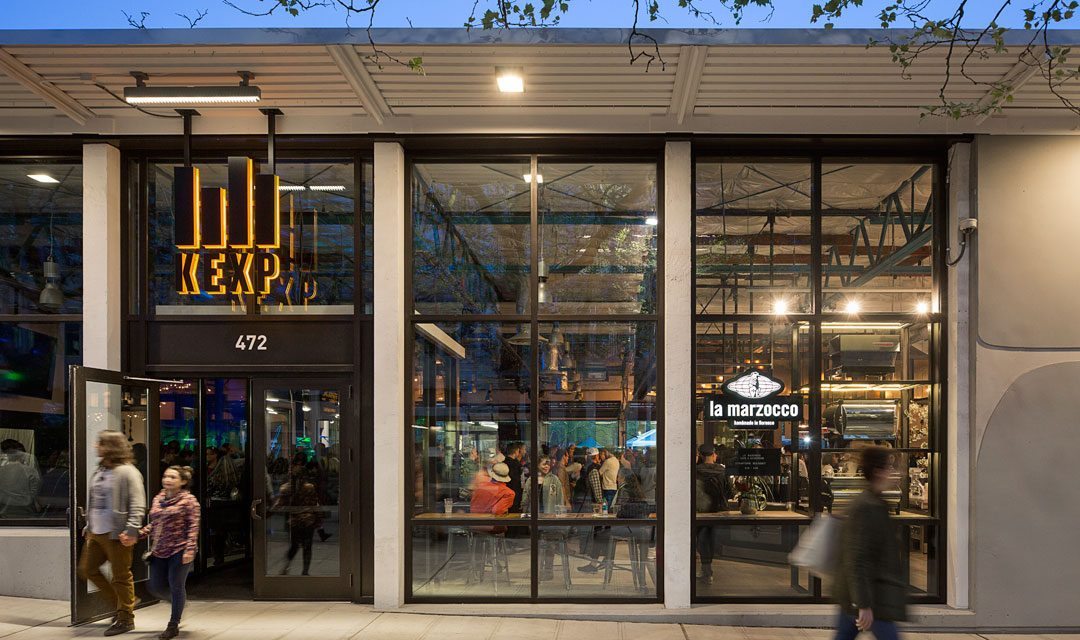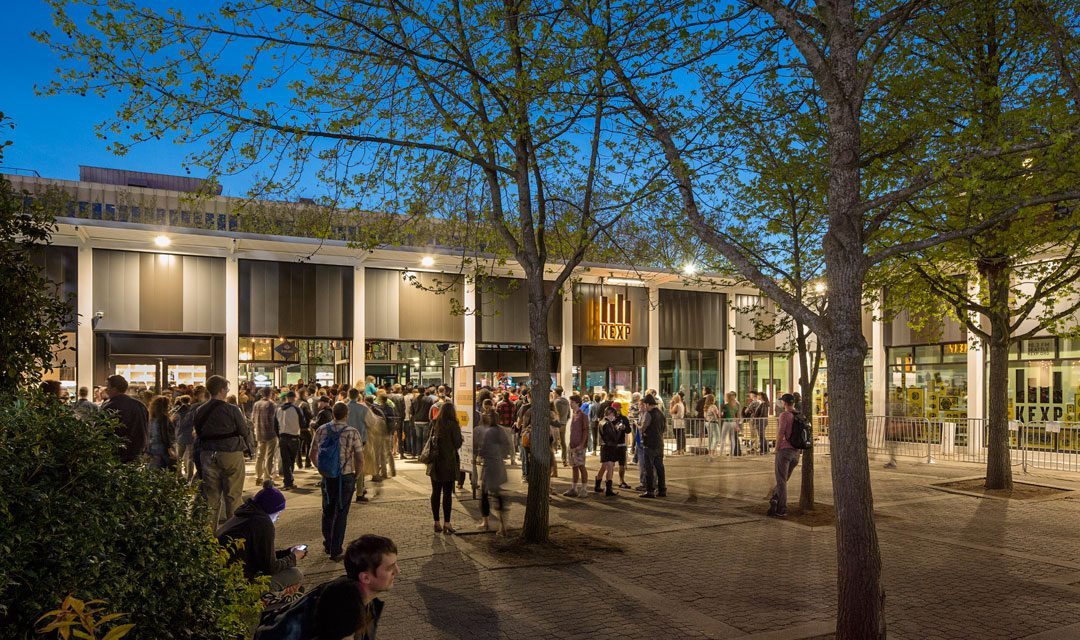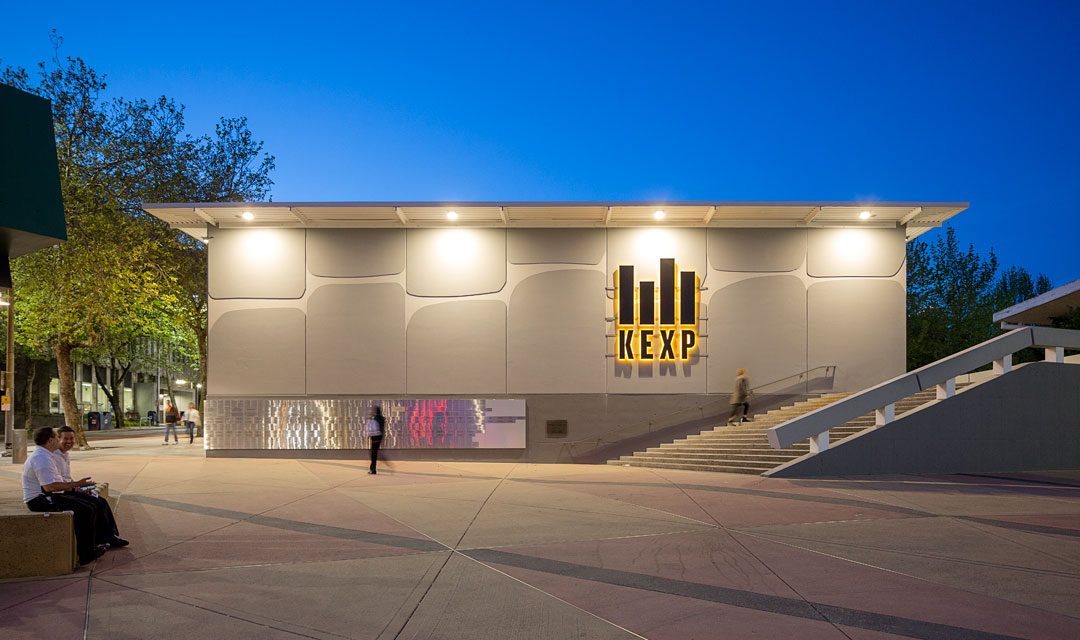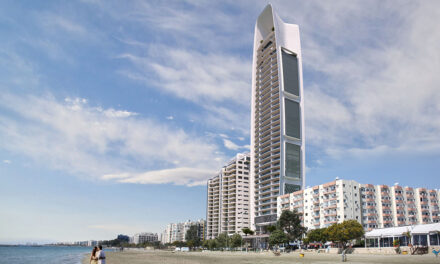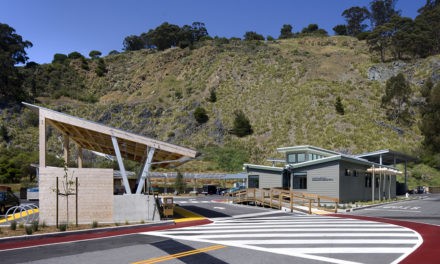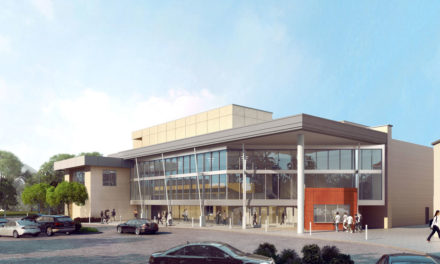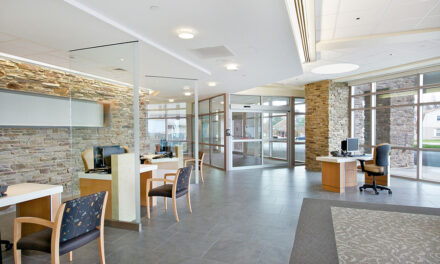Located in what was originally a temporary exhibition hall for the 1962 World’s Fair, the now landmarked building has been reborn as a light-filled global music hub, complete with music library, live performance spaces, DJ booths, open office workstations and the first-ever coffee retail concept for noted Italian espresso machine maker La Marzocco.
The design goal was to create an environment that connects people through music. Those connections are made across distances via radio, and physically by knitting the adjacent neighborhood together with Seattle Center through interior and exterior public gathering spaces.
“KEXP connects people through music. Our goal as architects and designers was to see that connection translated and amplified through physical space. Now, they not only connect with people over the airwaves, but in person via the public gathering space and at a community level by physically connecting the Lower Queen Anne neighborhood with Seattle Center. We felt this was a perfect expression of their ambitions to be not just a radio station but a worldwide community music hub.”
— Kyle Gaffney, co-designer of KEXP and co-founder, SkB Architects
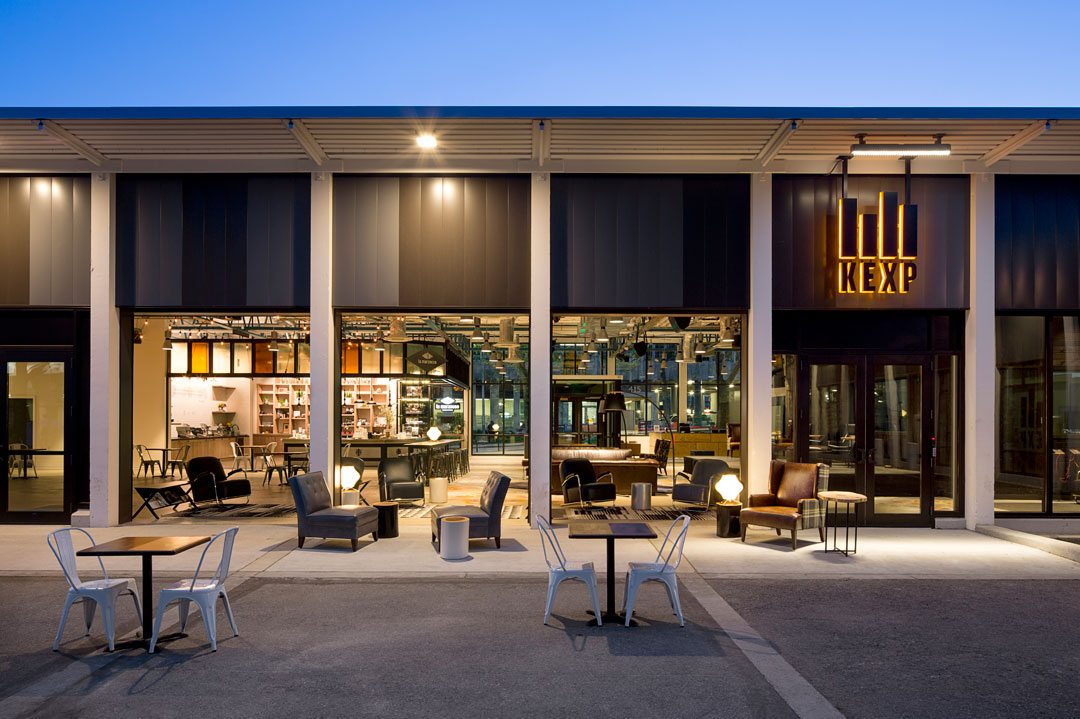
KEXP Headquarters, Seattle. Photo credit: Jeremy Bittermann
The design features amenities tailored to road-weary musicians. After a show, musicians can take advantage of an expanded green room which includes a lounge, shower, and laundry facilities. KEXP’s extensive music library of 50,000+ albums is showcased behind large glass windows enabling passersby to watch as DJs curate songs and prepare for their next show. By activating the building facade through glazing and openings, the design overcomes the wall effect that had previously blocked street energy from reaching further into the neighborhood.
A new glazed, mid-block entry further opens the studio to the street, bringing people into the gathering space, which in turn opens to the Seattle Center campus through roll-up doors. In the office area, untreated phone poles replace typical power feed poles to get the power from the cable trays down to the work stations. The telephone poles serve to recall the practice of stapling rock show posters to poles to announce upcoming concerts.
KEXP’s 25,000-square-foot complex features a 400-square-foot, on-air studio; a 1,090-square-foot Live Room; (2) production studios; (2) audio booths; (2) DJ booths; (2) video edit rooms; a video control room; (2) DJ isolation rooms; a Green Room; Production/Mastering and open office areas; a library and conference rooms. To support the stations’ commitment to airing live performances, a 4,500-square-foot Gathering Space was created, which includes the station’s reception area, a stage for live performances and seating/open space for audiences.
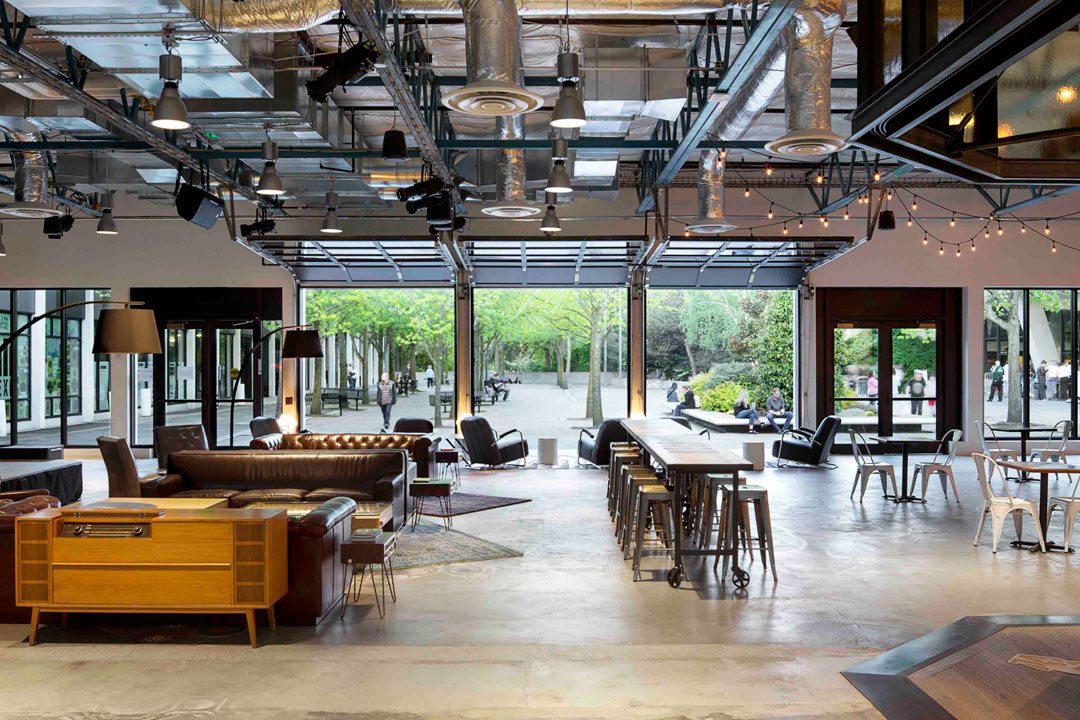
Photo credit: Jeremy Bittermann
The DJ booth is clad with old growth Douglas Fir salvaged from log rafts once used to transport lumber to the Pope & Talbot Mill in Port Gamble, Washington. The material, Teredo wood, gets its name and hole-y texture from Teredo clams that burrowed into the wood over years of use. A local material, it helps to convey ties to the Northwest and its industrial legacy.
The facility boasts full AOIP (Audio Over IP) with fully-routable audio that allows bands to perform live in the recording studio, broadcast the session live on the radio, and stream the video over KEXP’s live streaming service. The studio is organized in such a way that bands of every conceivable format can set up and breakdown quickly between 30-minute sets.
“Connecting people through music also means introducing people to new music and supporting up-and-coming artists at a very grassroots level. To that end, we included amenities in KEXP’s new home that road-weary musicians would welcome. They can come to KEXP, play a live show and then relax, take a shower and get some laundry done. When you’re living in a van for a few months at a time, these can be sorely missed moments of luxury.”
— Shannon Gaffney, co-designer of KEXP and co-founder, SkB Architects
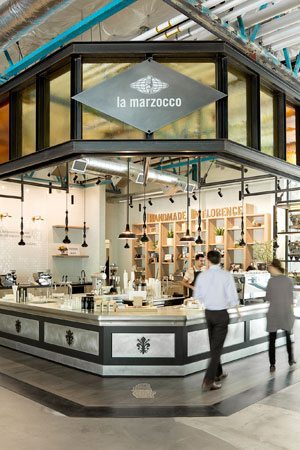
Photo credit: Jeremy Bittermann
The La Marzocco coffee experience, also designed by SkB Architects, is just inside the entrance. Coupled with casual seating, this area provides a relaxed atmosphere in which to hang out, listen to music and watch as the DJs broadcast their live shows from the glass-walled studio that adjoins the space. The open, 1,100-square foot café and showroom takes its design inspiration from La Marzocco’s Florentine factory and espresso machines, merging Italian heritage, meticulous craftsmanship, and thoughtful attention to detail and material.
Prior to World War II, radio stations often had theaters to accommodate an audience and full orchestras. Reintroducing live music and audience participation into the fabric of the building and program creates a rich experience for everyone, from DJs to musicians to the public.
Project team
Architecture and Interiors: SkB Architects
Acoustic Design: Walters-Storyk Design Group
Systems Design and Integration: Mizzen Media
General Contractor: Sellen Construction
Project Management: Costigan Integrated
Mechanical / Plumbing: McKinstry
Electrical: Nelson Electric
Structural: Coughlin Porter Lundeen
Photography
Jeremy Bittermann
Materials/Furnishings
Kawneer (curtain wall system); Wayne Dalton (roll up doors); Interface, Milliken, and FLOR (carpet tiles); Teragren (wood flooring in studio); Room and Board, Mitchell Gold + Bob Williams (lounge furnishings); SkB Architects (custom-designed reception desk, fabrication by Dovetail)
Editor’s note:
All photos in the photo gallery are credited to: Jeremy Bittermann

